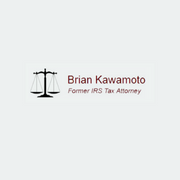Frequently Asked Questions About Personal Bankruptcy

When you’re unable to repay personal debts, such as a mortgage, credit cards, or outstanding medical bills, filing bankruptcy may be the best way to get back on your feet. While this form of debt relief offers many benefits, it still involves lengthy legal processes, the loss of assets, and lasting marks on your financial history. That’s why it’s critical to explore all your options and fully understand the process before making such a big decision. If you’re considering personal bankruptcy, here are a few common questions about the topic to help you prepare.
5 FAQ About Filing Bankruptcy
What is the means test?
The means test is a multi-step process that determines whether you can file for Chapter 7 bankruptcy or are limited to Chapter 13. First, your income will be assessed to determine if it’s above or below your state’s median income. If it’s below, you can move forward with filing. If it’s above, you’ll need to assess all your expenses over the past six months to demonstrate that your income isn’t enough to cover these financial needs.
What assets will you have to list?
 When filing for bankruptcy, all assets must be listed, including stocks, property, vehicles, jewelry, and other valuable belongings. Some or all of these assets may be liquidated to cover a portion of the debts you owe. However, steps can be taken to help protect those assets that you or family rely on, such as your home.
When filing for bankruptcy, all assets must be listed, including stocks, property, vehicles, jewelry, and other valuable belongings. Some or all of these assets may be liquidated to cover a portion of the debts you owe. However, steps can be taken to help protect those assets that you or family rely on, such as your home.
Can you still use credit cards if you plan on filing for bankruptcy?
It’s best to stop using your credit cards as soon as you decide on filing bankruptcy. While these resources can be used in an emergency, extraneous purchases could be considered fraud and result in further legal action against you.
How long does bankruptcy remain on your credit history?
One of the biggest drawbacks of personal bankruptcy is that it will remain on your credit report for 10 years. This information may make it more difficult for you to receive financing in the future, such as a mortgage.
How do you start the filing process?
First, hire a skilled attorney to help you prepare for the filing process as well as provide representation in legal settings. Next, gather all relevant documents, such as previous tax returns, pay stubs, bank statements, and credit card bills. This data will be used to file relevant forms with the courts.
If you have questions about filing bankruptcy in Hawaii, Brian Kawamoto, Attorney, has the skills to help streamline the experience. Well-versed in state and federal laws, this bankruptcy lawyer of Pearl City, HI, will help you explore your options and file. To learn more about debt and tax relief assistance, visit this lawyer online or call (808) 486-6107.
About the Business
Have a question? Ask the experts!
Send your question

